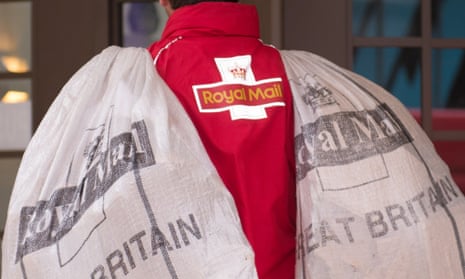The government has ruled out selling off its remaining 30% stake in Royal Mail before next year’s general election.
Vince Cable, the business secretary, said the government would retain the minority stake for “the foreseeable future”.
The coalition had been actively considering selling the remaining shares but scrapped the idea as Royal Mail’s share price continued to decline.
The shares, which floated at 330p when Royal Mail was privatised in October last year and quickly soared as high as 600p, have lost 26% of their value so far this year, closing on Thursday night at 420p.
“I think we should remain [significant shareholders in Royal Mail] for the time being,” Cable told ITV News. “We’re certainly not going to do anything within the foreseeable future.”
Cable and the government have been roundly criticised for selling off Royal Mail too cheaply. The National Audit Office, the public spending watchdog, said Cable’s desperation to privatise the company had cost taxpayers at least £750m.
Cable has ordered a review of the government’s sell-off procedures following widespread criticism. There was huge demand for the 60% of the company available, while Royal Mail staff were given 10% of the shares as part of the privatisation.
The shares were trading as high as 598p in March, which in theory could have generated almost £1.8bn for the Treasury – £530m more than the government could make from selling the shares at Thursday’s price.
The department for business, innovation and skills and the shareholder executive – which oversees state-owned assets – held talks over selling the remaining 30% in March but decided against it. Labour has ruled out selling any further stakes in Royal Mail if it wins the 2015 election.
Ian Murray, Labour’s shadow trade and investment minister, said: “Given the catastrophic fire sale of Royal Mail, Vince Cable’s announcement will not come as a surprise to anyone.
“The priority of the next Labour government will be safeguarding vital postal services. We will retain the public’s stake in Royal Mail, alongside securing the universal service obligation after its expiry in 2021, ensuring that Royal Mail services continue to be available through the Post Office network and that all postal service operators are subject to high performance and service quality standards.
“Cable is trying to play catch up with Labour’s plans, but having flogged off Royal Mail, leaving taxpayers short-changed and services at risk, he isn’t fooling anyone in his attempt to pose as a defender of postal services and this is too little, too late.”
On Wednesday, Cable accused Royal Mail of “scaremongering” over claims it will not be able to maintain a universal delivery service. His intervention came after Royal Mail stepped up warnings that its public duty to deliver mail anywhere in the country, six days a week, for the same price, is under threat.
Billy Hayes, general secretary of the Communication Workers Union, said: “We are pleased that the secretary of state recognises the importance of the government retaining its stake in Royal Mail and should see that as a long-term responsibility.
“The public respects their postal service and want to see the universal service protected. The government needs to maintain a strategic overview of the company for not just for the foreseeable future but for the long term”.

Comments (…)
Sign in or create your Guardian account to join the discussion